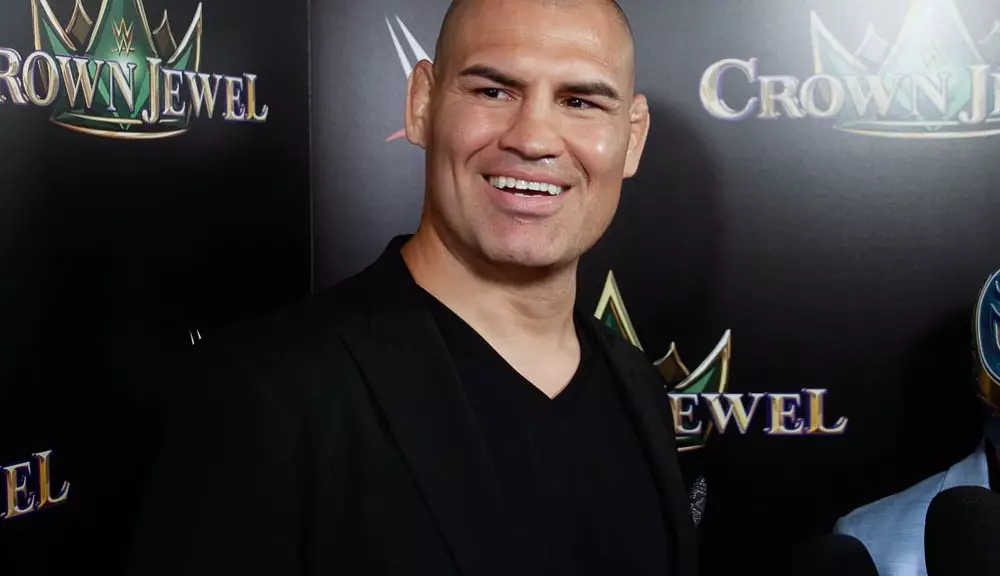The sentencing of former UFC heavyweight champion Cain Velasquez to five years in prison for a shooting incident in San Jose, California, is not merely a legal judgment but a profound commentary on human emotion, societal pressures, and the devastating repercussions of unchecked despair. At 42 years old, Velasquez’s once-celebrated career has been overshadowed by an alarming choice that has irrevocably altered the trajectory of his life and the lives of others.
In a courtroom filled with emotion, Velasquez’s plea of no contest to charges including attempted murder elicited a spectrum of reactions. The weight of the moment was palpable; Judge Arthur Bocanegra, visibly moved, recognized the difficulty involved in separating Velasquez the fighter from Velasquez the father and husband. With a credit of 1,283 days served, his actual incarceration was halved, creating a dichotomy in public perception—was this a fair sentence or a lenient escape for someone whose actions could have led to graver consequences?
A Father’s Fear and Fateful Actions
At the heart of this saga lies the harrowing incident from February 2022. Velasquez, fearing for the safety of his then-four-year-old son, engaged in a high-speed pursuit that culminated in gunfire aimed at a vehicle occupied by Harry Goularte, a man previously accused of molesting Velasquez’s son. The emotional turmoil driving Velasquez is undeniable; a father’s protective instinct, intertwined with overwhelming fear, can lead to choices that defy reason.
The shooter’s narrative is all too often about parental desperation, but the consequences ripple outward, affecting innocent parties. In this case, the bullets struck not just Goularte but also his stepfather, Paul Bender, highlighting the tragic reality that in an attempt to protect one child, Velasquez inadvertently harmed others. Society struggles with the notion of vigilante justice versus the lawful capacity to protect one’s family, and in this instance, Velasquez found himself on the wrong side of the law.
The Community’s Divided Sentiment
Community reaction to Velasquez’s sentencing has been multifaceted, reflecting both empathy and disbelief. Supporters present in the courtroom, some of whom had rallied outside leading up to the trial, highlighted his standing in the MMA world and the kindness he had shown to many. However, detractors voiced their concerns over the potential normalization of violence as a means of justice, placing the spotlight on the broader implications in society regarding how we perceive and respond to crime, especially against children.
District Attorney Jeff Rosen’s statement underscored the dangers of taking the law into one’s own hands: “One man’s decision to take the law into his own hands left an innocent man wounded.” Such perspectives raise ethical questions about personal responsibility versus societal failures in protecting vulnerable populations, particularly children.
The Duality of Humanity: Compassion Amidst Chaos
In the aftermath of sentencing, Velasquez surprisingly demonstrated a degree of compassion for the Goularte family. Expressing a desire for healing, he acknowledged that harboring hatred would only cloud his ability to focus on what truly matters—his children. This poignant realization does not detract from the severity of his actions but adds a layer of complexity to his character. It challenges us to ponder: can we reconcile our capacities for love and violence, support and condemnation, within the same individual?
The emotional statements made by the Goularte family reflect their ongoing anguish and disappointment, insisting that public perception has been swayed by rumor and unproven allegations. This juxtaposition of grief and anger paves the way for deeper conversations about trauma and the legal system’s integrity, showing how swiftly public sentiment can hinge on individual narratives rather than objective truths.
A Legacy of Lessons Learned in Pain
As Velasquez embarks on his prison term, the broader implications of his choices beg for exploration. The urgency of parent-child communication emerges as a central theme in his reflective comments, urging other parents to foster open dialogue about safety and appropriate behavior. This moment, albeit tragic, serves a greater purpose; amidst the chaos, there exists an opportunity for families to engage in meaningful discussions about personal safety and the importance of vigilance in childcare.
While the courtroom drama may come to a close, the societal conversation around parental instincts, justice, and redemption continues. Cain Velasquez’s story, like countless others, demonstrates that behind every headline is a human being grappling with the repercussions of an irretrievable choice. The reality is that while he may serve time for his actions, the stories catalyzed by this incident will ripple through communities, shaping discussions for generations to come.

